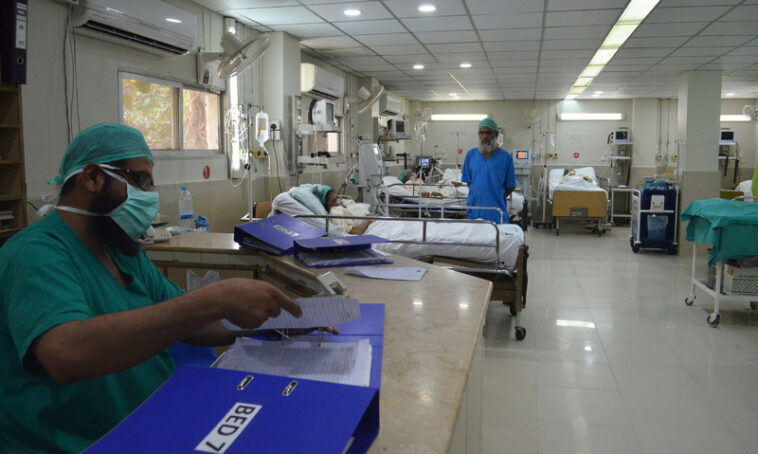There is an Economic crisis in Pakistan due to this Pakistan has wreaked havoc on the country’s healthcare system
Islamabad: The ongoing economic crisis in Pakistan has wreaked havoc on the country’s healthcare system, with patients struggling to obtain essential medications. Pakistan is unable to import the requisite pharmaceuticals or the Active Pharmaceutical Ingredients (API) used in domestic production due to a lack of foreign exchange reserves.
As a consequence, local pharmaceutical manufacturers have been compelled to reduce output as hospitalised patients suffer. Due to a lack of medications and medical equipment, doctors are unable to conduct surgeries.
According to media reports from Pakistan, the operating rooms have less than the two-week supply of anaesthetics required for delicate operations, such as those for the heart, cancer, and kidney. The situation may also result in employment losses in hospitals in Pakistan, adding to the suffering of the population.
By alleging that commercial banks are not issuing new Letters of Credit (LCs) for their imports, drug manufacturers have blamed the financial system for the healthcare system’s crisis.
Pakistan’s pharmaceutical industry is extremely reliant on imports, with nearly 95 percent of medications requiring raw materials from India and China. Due to a lack of dollars in the banking system, the majority of drug manufacturers have had their imported materials held up at the port of Karachi.
As a result of rising petroleum prices, transportation fees, and the sharp devaluation of the Pakistani rupee, the drug manufacturing industry reports that the cost of producing pharmaceuticals is continuously rising.
Recently, the Pakistan Medical Association (PMA) requested government intervention to prevent the situation from becoming a catastrophe. However, rather than taking immediate action, the authorities are still assessing the severity of the shortage.
According to pharmacies in Punjab, Pakistan, government survey teams visited the region to assess the dearth of essential medications. The majority of customers are affected by the shortage of common but essential medications, according to the retailers. Among these drugs are Panadol, Insulin, Brufen, Disprin, Calpol, Tegral, Nimesulide, Hepamerz, Buscopan, and Rivotril, among others.
The Express Tribune reported in early January that Pakistan Pharmaceutical Manufacturers Association (PPMA) Central Chairman Syed Farooq Bukhari stated that 20 to 25 percent of pharmaceutical production is currently stagnant. He added, “If current policies (import prohibition) remain in place for the next four to five weeks, the country will experience the worst prescription shortage in its history.”
Also read: Pakistan’s weekly inflation rate exceeds 40% for the first time in five months
Without a staff-level agreement, the Pakistani government and IMF staff concluded the ninth review of the USD 6.5 billion bailout package earlier this month. The Pakistani government had intended to persuade the IMF that the conditions could be implemented gradually. Nonetheless, Islamabad’s expectations were shattered during the 10-day visit of the IMF mission to Pakistan.




